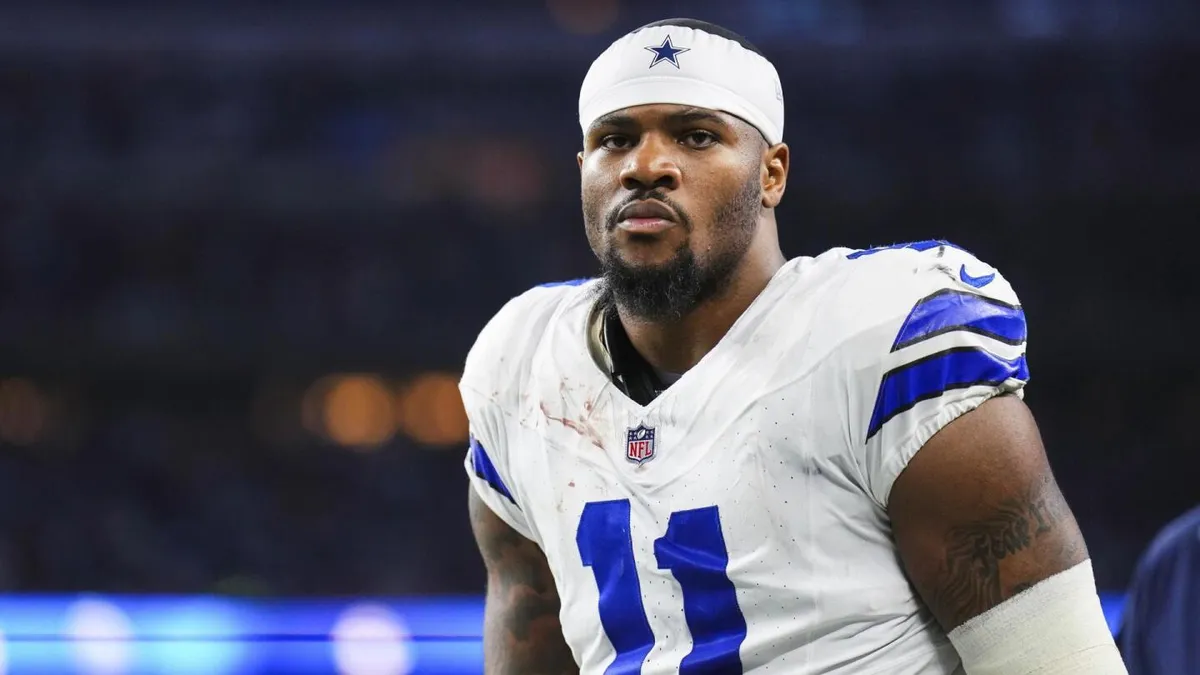
The Dallas Cowboys have often claimed that winning is their top priority, but their actions suggest otherwise. If the franchise genuinely cared about securing victories, they would not consistently delay contracts for their key players. This trend has been evident in recent years with several high-profile players, including Ezekiel Elliott, Dak Prescott, CeeDee Lamb, and most recently, Micah Parsons.
As the Cowboys report for training camp on Monday, all eyes are on whether Parsons will choose to hold out, similar to Elliott and Lamb, or show up like Prescott. An alternative route could be a "hold-in," where Parsons would report to camp but refrain from participating in practice until a new deal is reached. However, this strategy carries risks that could hinder his leverage in negotiations.
Opting for a hold-in might seem like a safe choice, allowing Parsons to avoid fines while minimizing the risk of injury during practice. Nonetheless, it also gives the Cowboys an advantage. Once a player reports, the team gains leverage, making it increasingly difficult for the player to walk away or refuse to play, especially given the stipulations of the Collective Bargaining Agreement.
History has shown how the Cowboys manage contract negotiations. Both Elliott and Lamb faced similar situations, where their absence played a significant role in securing the contracts they deserved. On the other hand, Prescott's decision to report did not stem from a holdout but rather from the looming prospect of free agency, which ultimately led the Cowboys to make him the highest-paid player in the league last September.
If Parsons decides to show up for training camp, the Cowboys may not feel pressured to negotiate in good faith. With a guaranteed salary of $24 million for the 2025 season and the option to apply the franchise tag in 2026, the team has little incentive to offer Parsons a lucrative contract. Given the current state of the edge-rusher market, it’s unlikely that his value will increase significantly before the end of the season, making it more appealing for the Cowboys to minimize his risk while he continues to play.
From a financial standpoint, if I were advising Parsons—whether as a father, brother, nephew, cousin, client, or friend—I would recommend that he stay away from training camp. Although he risks incurring fines of $40,000 per day and approximately $1.33 million for each preseason game missed, these amounts are relatively trivial compared to the larger contract he could negotiate. The only viable path for Parsons to secure the compensation he deserves is to hold out.
The likelihood is high that if Parsons reports to camp, the Cowboys will ultimately present him with a final offer that falls short of what he would receive if he chooses to hold out. If he declines their best offer, the Cowboys might try to delay negotiations until 2026. Conversely, if he opts not to show up, history suggests he could receive a fairer deal just before Week 1 of the season.
In conclusion, the ongoing contract negotiations between Micah Parsons and the Dallas Cowboys highlight the complexities and strategies involved in professional sports agreements. As the situation develops, it will be intriguing to see how both parties navigate this crucial moment in the upcoming NFL season.